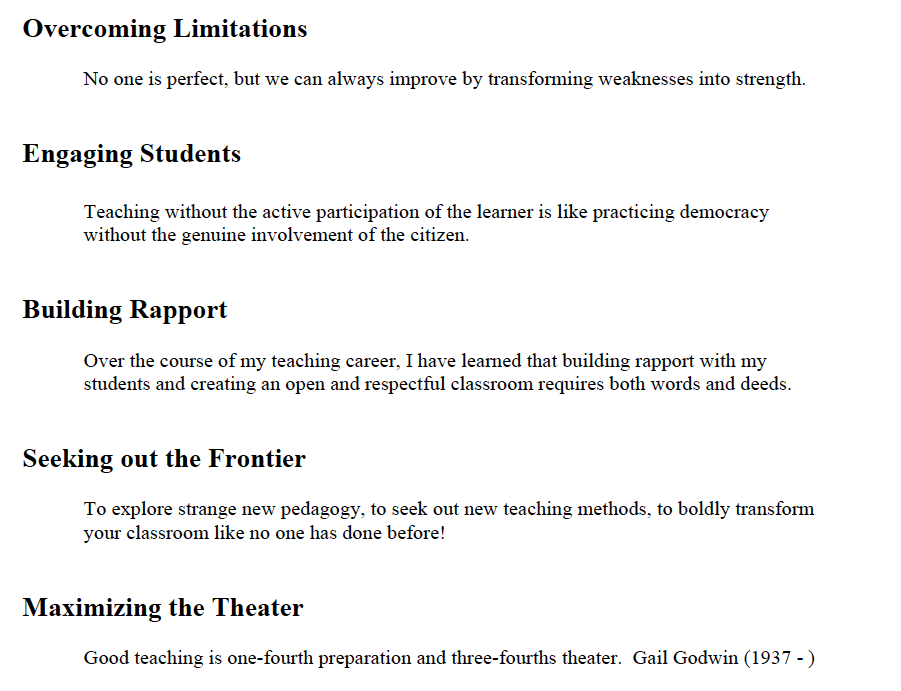"..one of the consequences of our approach to reform is that the curriculum gets narrowed as school district policies make it clear that what is to be tested is what is to be taught" Eisner, (eds.) p.299.
I teach ELA and SAT/ACT prep. in various international schools- IB, IGCSE, and American- in Cairo, Egypt. In almost all of these schools, I was specifically asked by management to focus on preparing students for their finals i.e. SAT, ACT, or APs. When a department head is available s/he usually picks the lessons that address said finals. This meant that lessons that are not relevant to the finals have, in the eyes of school management, less value in class than others. For example, in my last school, I was specifically asked to include SAT exercises in every ELA session. Consequently, the lesson plan for a literature session, for example, must include set time for said exercises, significantly reducing the time allotted for literature.
This orientation is usually communicated, directly or indirectly, to teachers and students who start to intentionally neglect all other educational aspects that do not relate to the final tests. This means that non-core subjects like, Arts and PE, become neglected as they do not contribute to the final score. On one hand, teachers start to plan their lessons and activities around "training" students on taking the finals as opposed to "preparing" them to be life long learners.
"..issues including dramatic demographic changes, policy changes, globalization, emerging technologies, and concerns surrounding refugees and immigration remain challenging for both school settings and teacher educators" (Hasan, A. et al., 2017).
This is exceptionally true in Egypt as the fees for international education have risen dramatically due to high demand from families who want the best education for their children. Consequently, this shifts the emphasis from wholesome education to mere training which, in turn, raises many questions about schooling real emphasis Smith, M. K. (2005). In the teachers' lounge, most of our conversations used to revolve around coming tests and how to prepare students for them. I should also mention here that teachers showed almost the same level worry about finals as much as the students themselves or their parents.
The reason for this, in my opinion, is multilayered: school districts emphasize only the role of common core; schools usually concentrate on students final results as an indicator to their success as an educational establishment which in turn means more applicants in the future and thus, more profit; teachers tend to follow school policy by orienting each lesson to serve the final test; students, in turn, regard all that is irrelevant to the final test as unimportant and unnecessary; parents are for the most part concerned with the graduation of their children rather than their development.
In my opinion, there is a need to make students cognitive development as important as their scores on their final tests. This should start with the policy makers. In other words, school districts should communicate, to all stakeholders, that curricular innovation alone is neither enough nor does it stop at the curriculum itself but transcends it to reflect educators own synthesization of it. Stakeholders in this situation are school management, educators, parents/guardians, and students. Said stakeholders should also strive to self educate about the underlying principles and/or theory behind curricular innovation in order to be able to see a clearer goal, each on his turf.
References
Eisner, E. What does it mean to say a school is doing well?. In Flinders, D. J., & Thornton, S. J. (Eds.), The Curriculum Studies Reader, Fourth Edition (pp.297-305). New York, NY: Routledge. Retrieved from: https://chrisdavidcampbell.files.wordpress.com/2016/12/eisener-2001.pdf
Hasan, A. et al (2017) Meeting the Challenges of Curriculum and Instruction in School Settings in the United States. Journal of Social Studies Education Research. retrieved from https://files.eric.ed.gov/fulltext/EJ1162276.pdf
Smith, M. K. (2005) ‘Elliot W. Eisner, connoisseurship, criticism and the art of education’, The encyclopedia of pedagogy and informal education, www.infed.org/thinkers/eisner.htm
Jerick T., (2015), Curriculum development curriculum issues, concerns and responses. Retrieved from https://www.slideshare.net/JerickTeodoro1/curriculum-development-curriculum-issues-concerns-and-responses-49630682


